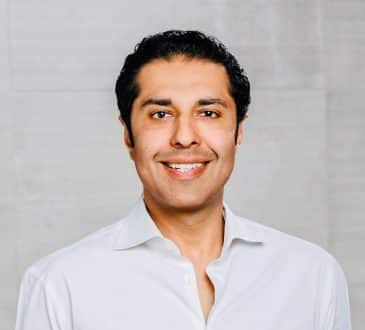Contemplative Leadership: Finding Time to Think

“The greatest enemy of good thinking is busyness.” ― John C. Maxwell
In the Harvard Business Review article How CEOs Manage Time, the authors report CEOs spend a quarter of their work on people and relationships, another quarter on functional and business unit reviews, 16% on organization and culture, and 21% on strategy. 12% is spent on professional development crisis management, mergers and acquisitions, and operating plans.
In his book, “Deep Work: Rules for Focused Success in a Distracted World,” author Carl Newport writes, “Microsoft CEO Bill Gates famously conducted “Think Weeks” twice a year, during which he would isolate himself (often in a lakeside cottage) to do nothing but read and think big thoughts.”
“I insist on a lot of time being spent, almost every day, to just sit and think. That is very uncommon in American business. I read and think. So I do more reading and thinking, and make less impulse decisions than most people in business,” says Warren Buffett, best-known investor and chair and CEO of Berkshire Hathaway.
How can busy leaders find time to think? Here are a few strategies that can help.
Block Time on The Calendar for Thinking
Many leaders block time on their calendars just for thinking. The time might be spent reading, reflecting, and writing, solidifying their thoughts. It could be time spent discussing an idea they may have. Whatever it might be, this deliberate allocation of time helps a leader step away from the day-to-day activities and focus on thinking and learning.
In the 2013 LinkedIn article, The Importance of Scheduling Nothing, Jeff Weiner, Executive Chairman at LinkedIn, writes, “As the company grows larger, as the breadth and depth of your initiatives expand — and as the competitive and technological landscape continues to shift at an accelerating rate — you will require more time than ever before to just think: Think about what the company will look like in three to five years; think about the best way to improve an already popular product or address an unmet customer need; think about how you can widen a competitive advantage or close a competitive gap, etc.”
His advice is to is to “periodically schedule nothing. Use that buffer time to think big, catch up on the latest industry news, get out from under that pile of unread emails, or just take a walk.”
Go for a Walk
“If you want others to follow, learn to be alone with your thoughts.”― William Deresiewicz
Several studies on the impact of exercise, including walking, have called out the connection between being active and cognitive functions. The anthropologist Jeremy DeSilva talks about great thinkers such as Charles Darwin, Ralph Waldo Emerson, Henry David Thoreau, John Muir, Jonathan Swift, Immanuel Kant, Beethoven, and Friedrich Nietzsche, and their obsession with walking in the article On the Link Between Great Thinking and Obsessive Walking. Darwin didn’t sit in his study to think. He used to walk five times on a path he called “Sandwalk,” now known as “Darwin’s thinking path.” It gave him the time to think and leveraged the mind-body connection.
Do household chores
Scientific studies have shown a positive link between doing household chores and cognitive improvement. I do some of my best thinking while I am washing dishes or folding laundry. Doing a routine task is on auto-pilot, and the mind is free to wander and think about all sorts of topics, including how to solve a complex problem. The mind-wandering can be conducive to creative thinking and problem-solving. It allows your brain to make new connections and generate ideas.
Think Together with a Friend or Mentor
There may be times when you want to refine some of your thoughts or ideas by brainstorming with a friend or a mentor. Such an activity can help clarify your thoughts, especially if you are stuck on a concept.
In the National Public Radio Broadcast (NPR) ’s podcast, Hidden Brain, Nobel Prize winner and psychologist Daniel Kahneman says, “When you have two people who are working together who really, in a way, love each other’s mind and admire each other’s mind, that is very special because it gives you a sort of confidence when the other – you say something and the other person sees something in it that you haven’t seen.”
Cultivate diverse friendships, find your special person to think together, and collaborate.
In Thinking About Thinking, the author gives you a tip on finding that person:
“So one effective thing you can do if you want to think better is to become better at probing other people’s thinking. Ask questions. Simple ones are better. “Why” is the best. If you ask that three or four times you get to a place where you’re going to understand more and you’ll be able to tell who really knows what they are talking about.”
Read, Write, and Listen
In his book Hidden Potential, author Professor Adam Grant writes, “Don’t be afraid to try a new style. Instead of focusing on the way you like to learn, embrace the discomfort of matching the method to the task. Reading and writing are usually best for critical thinking. Listening is ideal for understanding emotions, and doing is better for remembering information.”
When you read, you are collecting your thoughts. Writing crystallizes them and makes it possible to communicate them to your audience. Set aside time to read, reflect, and write. Keeping a journal and writing down your thoughts help your reflections.
Another activity that leads to reflection is listening. When I am watching a show or listening to a lecture, I make a note about something that piques my interest. I would later research what I heard to find supporting or opposing arguments, think about them, and write down my thoughts.
Reading, writing, and listening are keys to thinking.
Benefits of Thinking
When you are busy fighting fires or taking care of mundane everyday activities, there is not enough time to do the kind of thinking that helps you understand the bigger picture and complex problems. Learn to allocate time to think, find strategies that work for you to find the time, and you will be amply rewarded.
Written by Shantha Mohan Ph.D.
Have you read?
Ranked: The World’s Most Powerful Countries For 2023.
Ranked: Countries with the highest share of women in parliament.
The World’s Largest Gold Producing Countries, 2023.
Ranked: The World’s Most Influential Countries, 2023.
Ranked: World’s Most Forward-Thinking Countries, 2023.
Add CEOWORLD magazine to your Google News feed.
Follow CEOWORLD magazine headlines on: Google News, LinkedIn, Twitter, and Facebook.
This report/news/ranking/statistics has been prepared only for general guidance on matters of interest and does not constitute professional advice. You should not act upon the information contained in this publication without obtaining specific professional advice. No representation or warranty (express or implied) is given as to the accuracy or completeness of the information contained in this publication, and, to the extent permitted by law, CEOWORLD magazine does not accept or assume any liability, responsibility or duty of care for any consequences of you or anyone else acting, or refraining to act, in reliance on the information contained in this publication or for any decision based on it.
Copyright 2024 The CEOWORLD magazine. All rights reserved. This material (and any extract from it) must not be copied, redistributed or placed on any website, without CEOWORLD magazine' prior written consent. For media queries, please contact: info@ceoworld.biz
SUBSCRIBE NEWSLETTER








